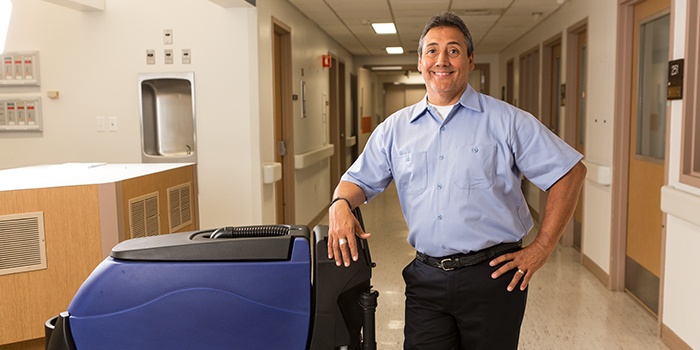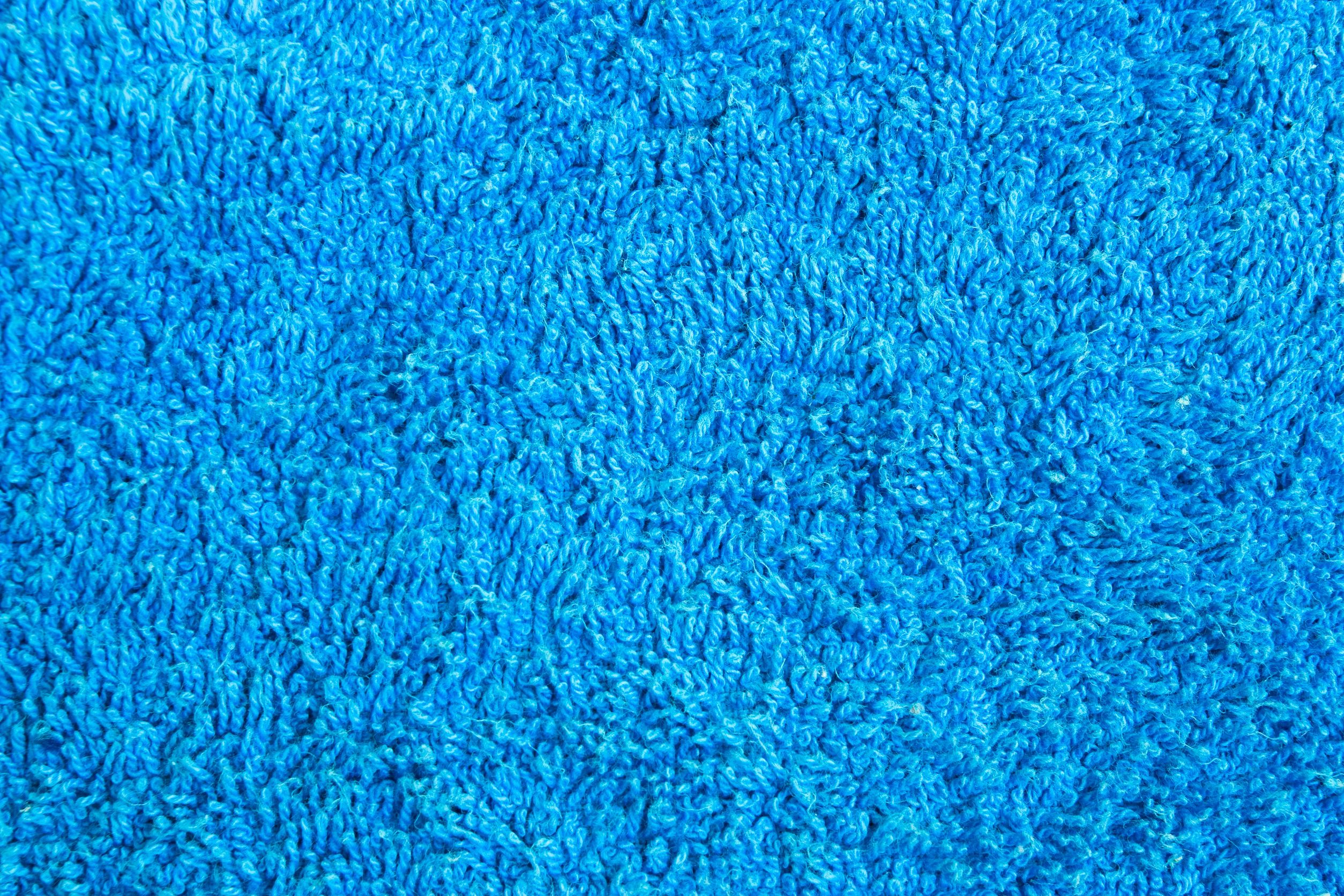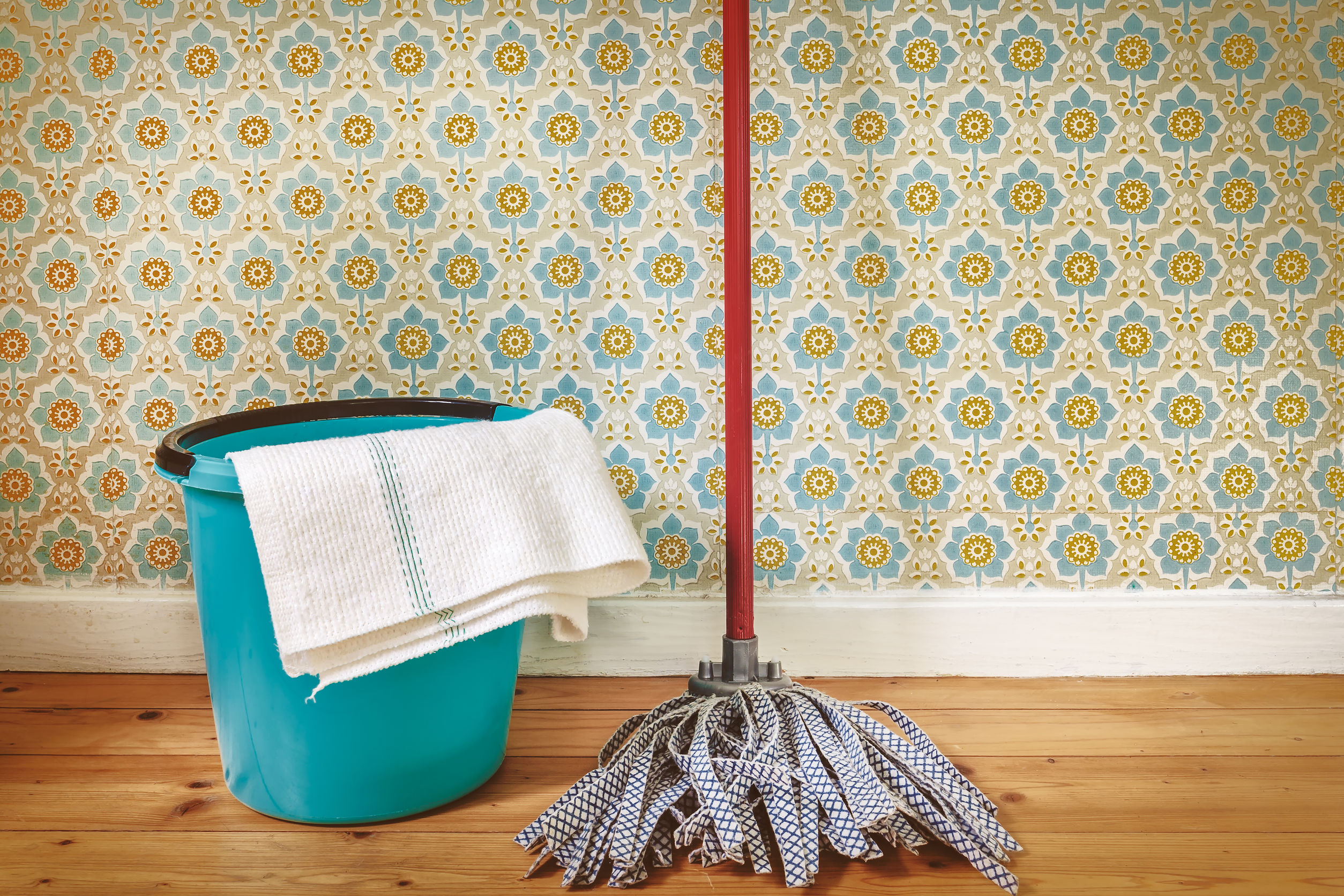
Maintaining a clean and safe hospital floor is a unique challenge. Hallways cannot be closed off or blocked for cleaning or finish maintenance purposes, so how do you get the job done? And if that wasn’t tricky enough, what about noise, harsh chemicals, and other disruptions that may interfere with patient care?
The challenge for the environmental services floor maintenance staff is that hospital doors don’t close. Therefore, floor cleaning/maintenance equipment and their operators must do their job without blocking staff and the care they’re providing or disrupting patients, so you need machines and processes that are meant for these clinical environments.
Seems like a tall order. To get an idea what needs to be considered when maintaining hospital floors, start with these questions.
1. Can the automatic scrubber clean and perform chemical-free finish removal?
This dual-purpose capability will save you A TON of money, labor, time, and storage space - so answering this question is paramount!
To get all the benefits of a dual-purpose scrubber, you are likely looking at an orbital scrubber rather than a traditional disk scrubber. When looking at orbital scrubbers, you need to look closely at two elements: durability and performance. The early orbital scrubbers on the market weren’t durable enough to handle the daily cleaning and finish maintenance workload, but some companies have solved that concern. Make sure to purchase a machine with an isolator warranty, as most call these “wear items.”
In healthcare, there is an increase in the use of very hard finishes to add resilience and protect against foot traffic and the sanitizer chemicals often found in hospitals. That makes chemical-free finish removal a challenge. You should be looking for two things: the isolator warranty mentioned above and premium performance specifications that allow the scrubber to remove these tough finishes. You’ll be able to tell which machine truly performs after a demonstration.
Check out this savings calculator to see how much money and labor you will save just with the chemical-free finish removal. It will pay for the scrubber in no time!
2. How much noise is too much?
Hospital patients rest better in quiet environments. You should be looking for models under 70 dBA, and the lower the better. Machines at about 63 dBA or less are far less disruptive to patient care and hospital workers.
To note, early orbital floor scrubber brands were too loud for healthcare. Some of the newer ones have addressed this and operate in the 60-63 dBA range. It’s always a good idea to get a demo to ensure the noise is acceptable.
3. Is the scrubber leaving safe floors behind?
Slip/fall safety is a top concern. Recovering patients often walk the halls of hospitals to regain strength, and staff members are often in a hurry to get from point A to point B. Hospital floor machines cannot leave behind any messes or puddles. Look for machines that leave surfaces clean and dry.
Also, with chemical-free finish removal, the slippery slurries generated during traditional chemical stripping are history! In fact, the hallway can remain fully open during the finish removal process.
4. Do all automatic scrubbers end up smelling bad?
You will want to search for a scrubber with a tank treatment system to keep foul odors as unnoticeable as possible. Tank treatment systems work to eliminate the bacteria in many recovery tanks that cause poor quality - even to the point of unhealthy - air to be exhausted during operation. Even small gestures like fresh air can make a world of difference to healing patients.
5. Is HEPA filtration necessary?
Air quality is critical for hospital cleanliness and patient recovery, and HEPA filters are the best way to prevent the spread of airborne bacterial and viral infections. HEPA filters also collect any dust and other small debris. Floor scrubbers that come equipped with these filters are ideal for hospital cleaning.
Hospitals are fast-paced and constantly changing. Above all else, patient care and staff accessibility are top priorities when cleaning in healthcare settings. Your chosen machine should be up to these challenges and more: tough and efficient, yet courteous to recuperating patients.
Ready for a floor machine that can clean efficiently with respect to nearby patients and hospital staff? Check out our product line today.
Get a free orbital scrubber guide right here, too!




